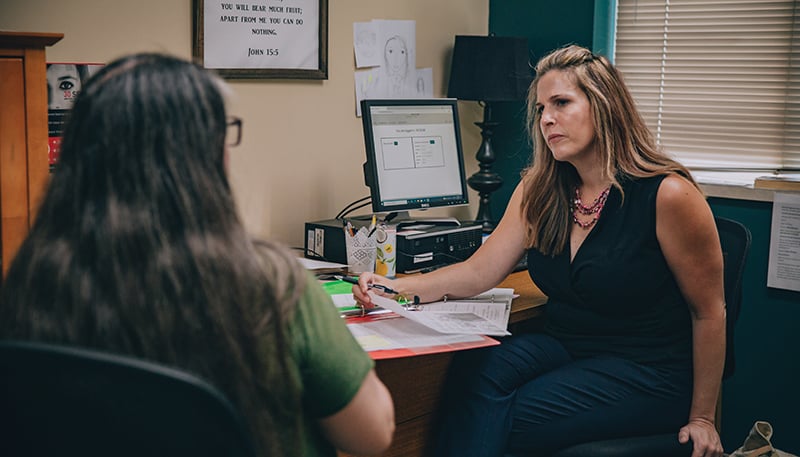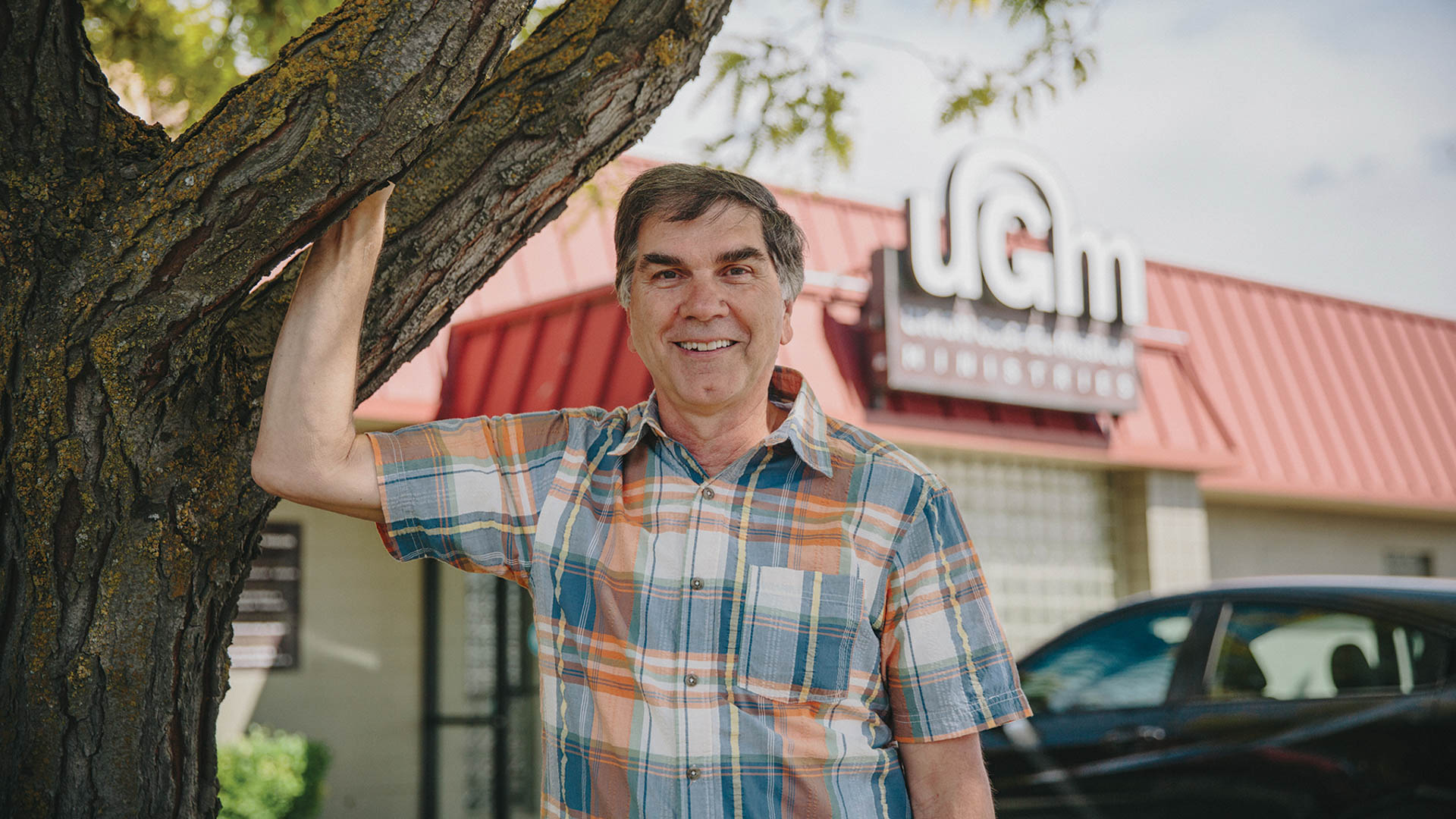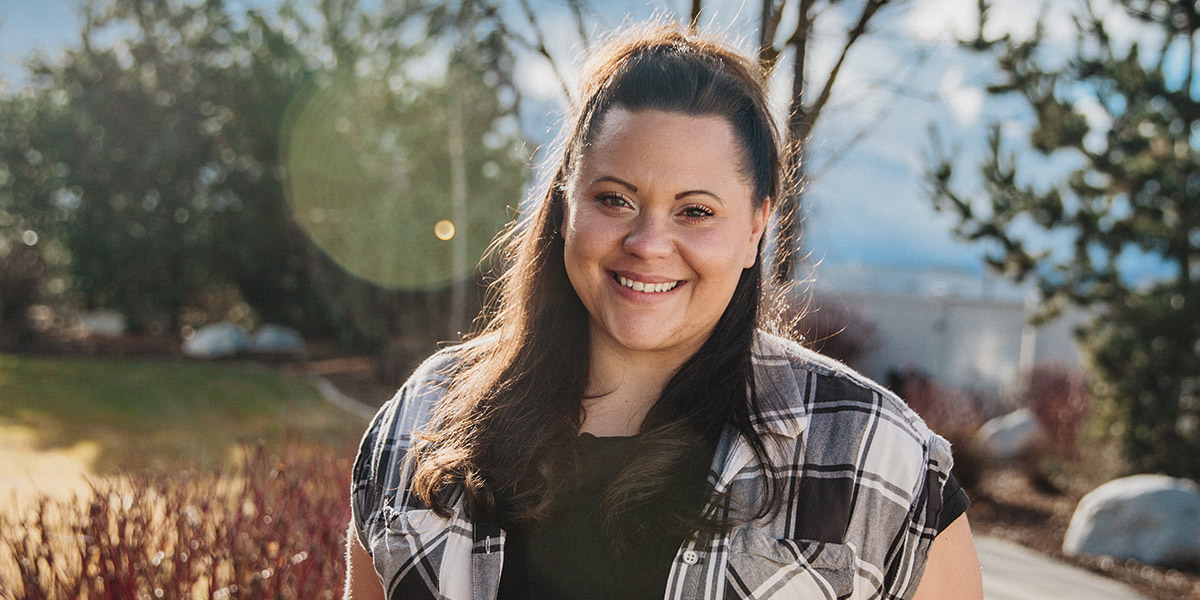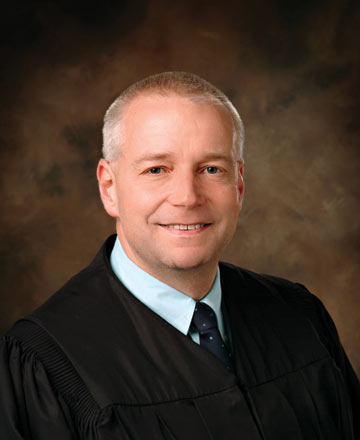3 min read
Volunteers Providing Welcome
UGM’s volunteer case managers stand on the frontlines of ministry, offering listening ears and wise counsel to men and women in crisis.
Freedom. Stop for a moment and think about that word. What does it mean to you? Do you feel truly and deeply free? Have you ever felt the opposite – trapped? captive?
We asked about 20 men and women living in our shelters how they would describe freedom. Their answers varied widely. One guest at the Crisis Shelter for Women & Children described it like this: “To go and do what you wanna do, when you wanna do it, however you wanna do it, how long you wanna do it.”
Sounds kind of like the headlines lately, doesn’t it? Some of the residents in our recovery programs, however, have started thinking about freedom in a whole new way. As you read their answers below, you might want to write out your own. If you do, send them our way. We’d love to hear your thoughts on the subject of real freedom.
Jeff |
Rowan
Rowan was caught in the double trap of addiction and domestic violence. “I wasn’t able to leave the house at all. I wasn’t allowed to have friends. I wasn’t allowed to see my family. I was just stuck in this house with this man. I didn’t have any identity at all other than I was his girlfriend. And I totally lost myself in that. I had no idea who I was or who I wanted to be. I think for a long time I was really just waiting to die and for it to be over. But that’s not my life anymore. That’s not who I am today. “In the beginning, I thought I was free…I thought he was going to be everything I ever wanted. He had a Mohawk, all these tattoos. It was kind of like he represented what my idea of freedom was – freedom of expression with his body, his words. He had kind of an anarchist personality, and I really liked that. But over time, the relationship became more and more controlling, and as I lost my freedom, I also felt like I lost the power to do anything about it. “He’s the father of my child, and I was so afraid of being a single mom, and I was so afraid of learning to live life on my own that I just let myself live in denial and think that somehow we were going to work out and everything was going to be OK. But that’s not what God had planned for me. “I feel truly free today. For the first time, I think. Growing up, I thought that freedom was going to be doing whatever I wanted and that included doing a lot of drugs and being homeless, and I thought that’s what I wanted. But the longer I’ve been on my walk with the Lord, freedom has turned into choosing to make the right decision in every situation and knowing that I have that choice and just knowing that I’m forgiven. That’s what freedom looks like to me.” And one more thing… “Freedom is choosing to grow all the time, and as long as I’m making that choice to grow spiritually and grow in my education and as a mother, the possibilities are endless. That’s how I feel. I feel free.” |
Ben
Ben gave three clear examples of what freedom is not. One - “Just before I moved here, I was a month and a half late on my rent, and the manager for the apartment building was literally right across the hall from me. I was looking out for people before I would leave and tiptoeing around my own apartment. I didn’t call her. I didn’t contact her.” Two - “After I got my DUI when I was in a drunk tank basically. I wasn’t free at all then.” Three – “When my mom and my step-dad were fighting, and my sister and I weren’t old enough to drive and we were relying on these people for the basic needs of life and here we were clinging to each other.” When asked to describe a time when he felt truly free, Ben described a recent outing to a Spokane Indians’ game with his young nieces. They were having a great time watching the game, and Ben was explaining a few of the nuances of baseball. “The guy in front of me was drunk, and he turned around and said, ‘That’s really awesome that you can do that.’” And Ben realized that two or three months ago, that would have been him. He, too, used to think freedom was doing what you want, how you want, when you want. “That was my definition of freedom before I lived here,” but now he’s experiencing a different kind of freedom – “free of using alcohol, free of depression from the past, free from anxiety in the future, and still be able to do what you want in healthy ways.” Jesus said he came to set the captives free. When you give to the Union Gospel Mission, you are helping people who have been in bondage for years experience a whole new kind of freedom. Thank you! |

3 min read
UGM’s volunteer case managers stand on the frontlines of ministry, offering listening ears and wise counsel to men and women in crisis.

2 min read
We are a forgetful people. We forget how broken the world is in which we live. We forget how much we are loved by a good God. We forget the sinister...

2 min read
Our hope is built on nothing less than Jesus’ blood and righteousness. “The Lord your God is in your midst. A mighty one who will save.” (Zeph. 3:17)...

By the Honorable John T. Mitchell, District Judge, Kootenai County, Idaho

1 min read
All of the people interviewed for this article described lives of profound desperation. They were in mortal danger – not from starvation or exposure...